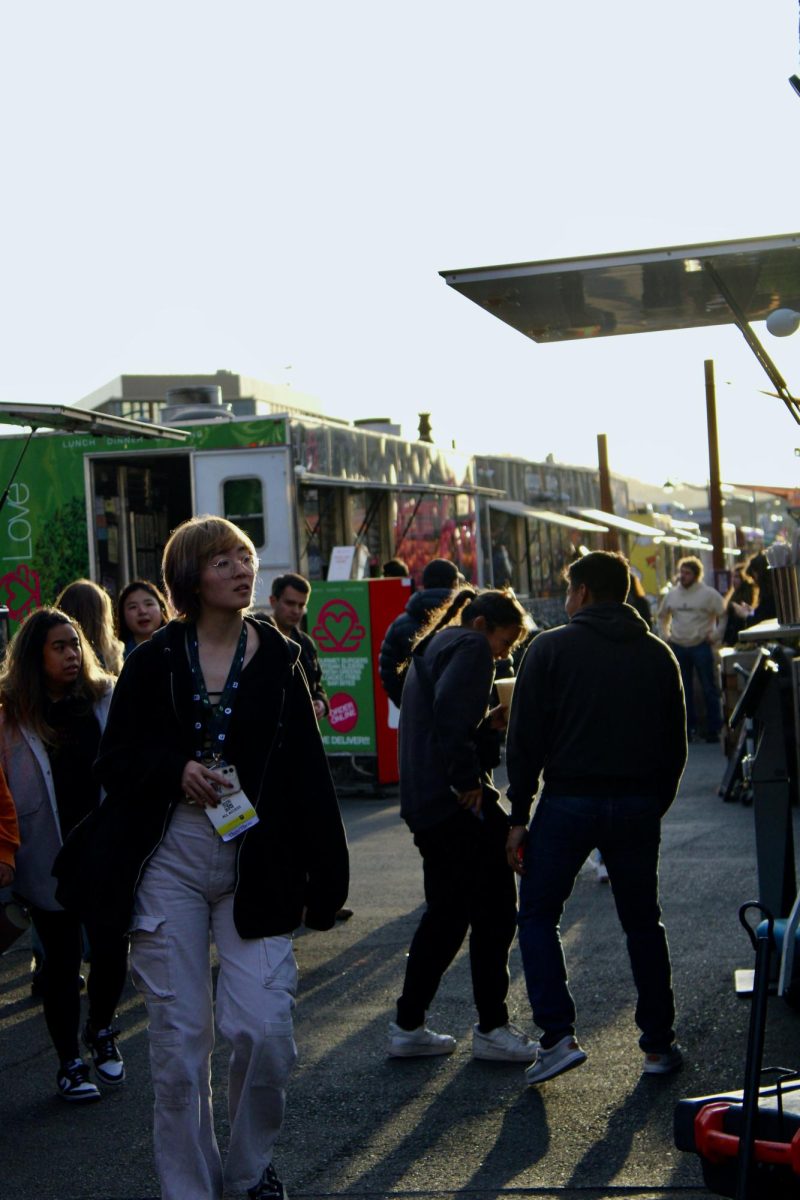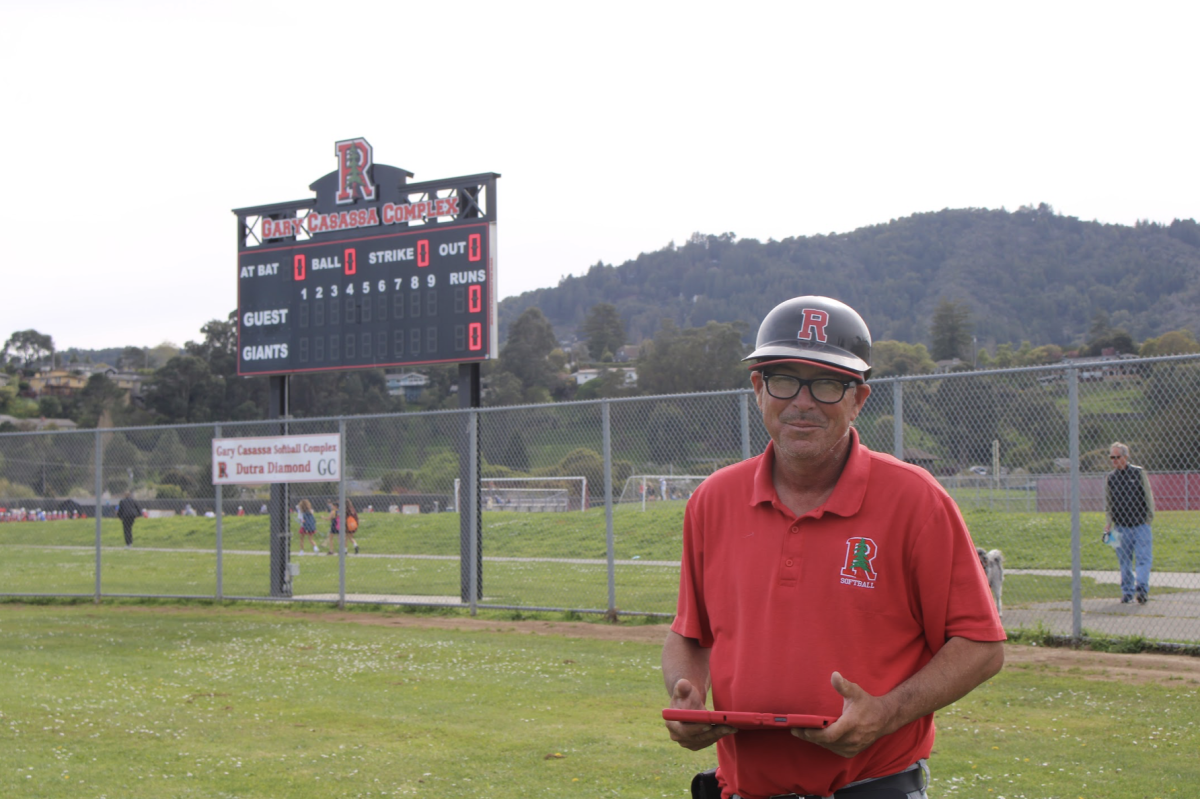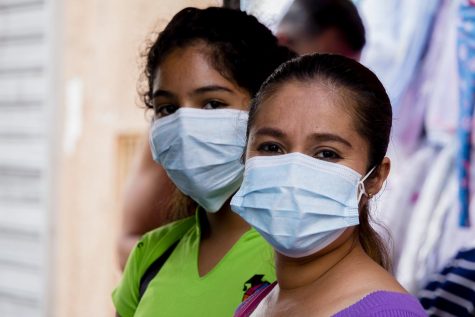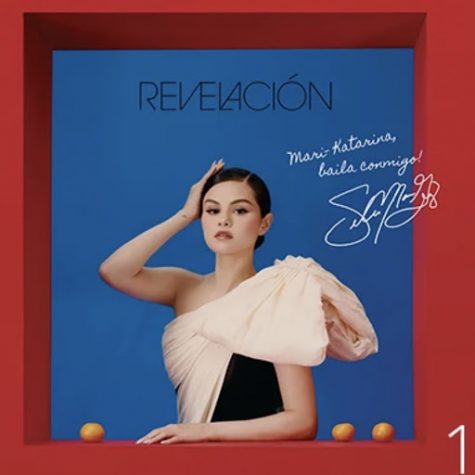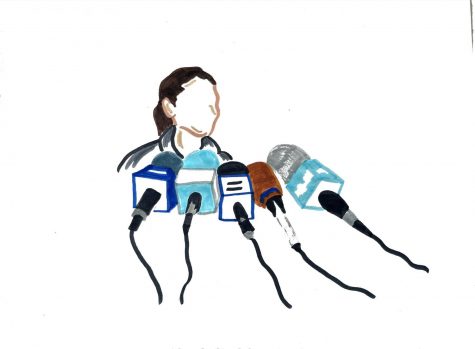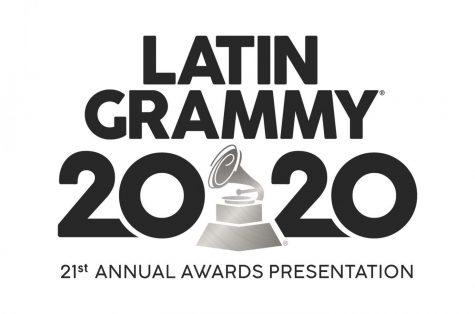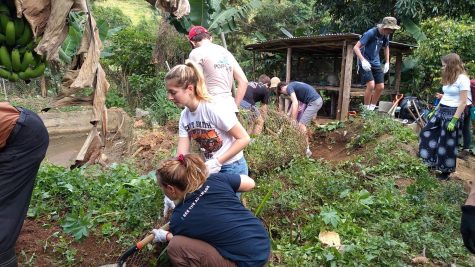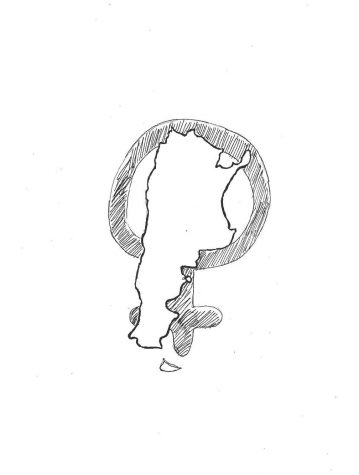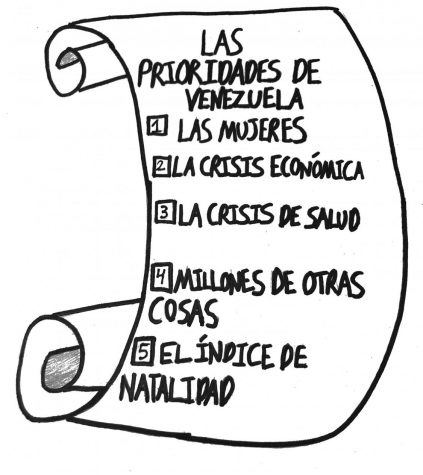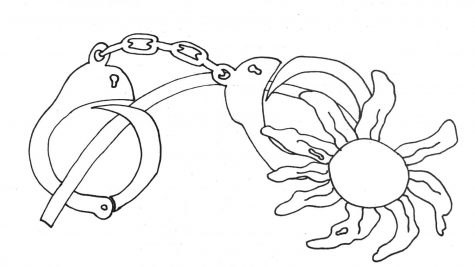Autora Isabel Allende vino a San Rafael para hablar de su nuevo libro
Entrevista cortesía de la Universidad de Dominican
February 8, 2020
El lunes, 3 de febrero, la Universidad de Dominican y Book Passage invitaron a la famosa autora chilena Isabel Allende para que habla de su nuevo libro,“Largo Pétalo de Mar.” El evento ocurrió en la universidad, donde Allende pasó una hora hablando sobre su obra con Michael Krasny, un presentador de radio para KQED. Aunque su copia inicial es en español, ellos hablaban en inglés.

Publicado en mayo de 2019, el libro se trata de una pareja española que huye la guerra civil que ocurrió en España de 1936 a 1939. Aunque tuvieron un matrimonio de conveniencia, los dos personajes se enfrentan juntos al desafío de mudarse en Chile, algo que fortaleció su relación.

Deborah McCrea, una profesora de español y ELD en Redwood, asistió esta presentación, pero no era la primera vez que ella había visto a Allende. Sin embargo, este evento se la destacó a ella porque tenía un formato diferente que permitió que Allende muestra su personalidad también.
“Tiene mucha carisma, es muy cómica y tiene ideas interesantes. Nunca la he visto en un formato de entrevista. Más antes también presentaba sobre su libro, [pero este evento se trató de] su vida,” McCrea dijo.
McCrea ya terminó este libro y vale el tema de los refugiados y el hecho que Allende notó su relevancia al dia presente en su entrevista.
“Me gustó mucho como hablaba de la inmigración de los refugiados en un contexto histórico porque Chile aceptó muchos refugiados después de la guerra civil en España. [Allende] estaba diciendo que desafortunadamente, [los EEUU] no está haciendo lo mismo, y que los inmigrantes ofrecen mucho para nuestra sociedad,” McCrea dijo.
María Fernanda Civano, otra profesora de español, asistió al evento también y está de acuerdo que el formato de una entrevista permitió que el público aprecia la personalidad de Allende.
“Ella es muy cariñosa con mucho efecto, muy simpática, muy conocedora de su arte y lo que ella hace. Me encantó que [Allende] apareció como una persona normal,” Civano dijo.
En su libro, el tópico no sólo es relevante a los refugiados sino que a los españoles. El espíritu de la guerra civil en España todavía es muy viva en la memoria del país, según Allende. Ella dijo que unos 70 libros son publicados en españa sobre la guerra civil cada año.
A causa de estas circunstancias, Allende decidió añadir un ángulo romántico a su cuento de desplazamiento porque ella cree que el amor es importante para vencer tiempos duros.
“Pienso que el amor es como el pegamento que se mantiene a todos unidos. Incluso en las circunstancias más extremas, como una guerra, hay amor,” Allende dijo.
Por eso, Allende cree que su libro tiene relevancia en Chile también, tanto como España. Citando las protestas del año pasado sobre pasajes más caros para el autobús, Allende dijo que muchos chilenos necesitan algo para depender como los temas del amor en su libro.
“[Chile se está] pasando por una crisis fundamental. Todas las instituciones están en cuestión, así la gente no tiene nada para aferrarse,” Allende dijo.
Allende notó también que escribiendo el cuento era fácil; solo tenía que estudiar las experiencias de otra gente. Sin embargo, ella cree que cuando se tradujeron su libro de español a inglés, el cuento cambió.
“El lenguaje es como sangre. Es tan cultural, tan personal. Hay algo que cambia en traducción. [Durante presentaciones de mi libro en inglés], yo no me siento como es mi libro,” Allende dijo.
Sin embargo, Allende todavía está agradecida para su plataforma anglohablante que ha aumentado en los EEUU.

“[Los EEUU] me han dado muchos honores que yo no tendría en mi patria, el respeto que no habría tenido en Chile,” Allende dijo.
En los EEUU, Allende ha recibido 15 doctorados honoríficos, con uno de Harvard, una posición en el salón de la fama en California y el honor presidencial de la libertad de Barack Obama.
Allende estudió las dictaduras recientes en Chile y España para su libro. Ella notó que han ganado tracción basadas en la idea que los tiempos pasados eran mejores que el presente, pero ella no está de acuerdo, manteniendo su optimismo.
“[Humanos son] tribales. En estas circunstancias, líderes autoritarios emergen. Yo soy muy optimista porque cuando investigo, yo estudio la historia y hay una curva. [Las circunstancias] nunca fueron mejores. Ahora tenemos más recursos para hacerles mejores,” Allende dijo.
ENGLISH VERSION
On Monday, Feb. 3, Domincan University’s Women Leadership and Philanthropy Council partnered with Book Passage to host famous Chilean author Isabel Allende. At the university, Allende spent an hour discussing her new book, “Long Petal of the Sea,” with English professor Michael Krasny. Although her initial copy is in Spanish, the two spoke in English.
Released in May, 2019, the book traces a married Spanish couple as they escape the 1930s Spanish Civil War. Though it is a marriage of convenience, the two of them overcome many challenges together as they moved to Chile. Though they are initially motivated by their desire to return to Spain, they eventually find an unexpected, joyous life together.
Deborah McCrea, a Spanish and ELD teacher, attended this event, but it was not the first time she had seen Allende speak. The event stood out to her because of its interview set up that allowed Allende to also showcase her personality.
“She has a lot of charisma, she is very funny and has interesting ideas. I have never seen her in an interview-oriented format. Before she [just] presented her book, [but this event was about] her life,” McCrea said.
McCrea has already finished the book and values the theme of refugees, as well as how Allende noted its current relevance in her presentation.
“I liked how she talked about the immigration of the refugees in historic context because Chile accepted a lot of refugees after the Spanish Civil War. [Allende] was saying that unfortunately, [the United States] is not doing the same, and that immigrants offer a lot for our society,” McCrea said.
María Fernanda Civano, another Spanish teacher, also attended the event and agrees that the interview-oriented format allowed the audience to appreciate Allende’s personality.
“She is very affectionate with a lot of effect, very nice [and] very aware of her art and what she does. I loved that [Allende] appeared like a normal person,” Civano said.
However, the book is not only relevant to refugees but to current Spanish citizens. According to Allende, the spirit of the Spanish Civil War is very vivid in the country’s memory. She even said that about 70 books are published in Spain about the Spanish Civil War each year.
Due to these circumstances, Allende decided to add a romantic angle to this story of displacement because she believes love is important in overcoming tough times.
“I think that love is like glue that holds everything together. Even in the most extreme circumstances like a war, there is love,” Allende said.
For this reason, Allende believes her book is also needed in Chile, just as much as Spain. Citing last year’s protests over higher bus fares, Allende stated that many Chileans are in need of something to depend on.
“[Chile is] experiencing a fundamental crisis. All institutions are being questioned, so people have nothing to hold on to,” Allende said.
Allende also noted that writing the story came easily to her; all she had to do was look at others’ experiences. However, she believes that when her work was translated from Spanish to English, the story changes.
“Language is like blood. It is so cultural, so personal. There is something that changes in translation. [On English speaking book tours], I don’t feel like it’s my own book,” Allende said.
Nevertheless, Allende is still grateful for the English-speaking reader base that she has gained in the United States.
“[The United States] has given me many honors that I wouldn’t have had in my home country, respect that I wouldn’t have had in Chile,” Allende said.
In the United States, Allende has received 15 honorary doctorates, one of which is from Harvard, has been indicted into the California Hall of Fame and has been given the Presidential Honor of Freedom by former President Barack Obama.
When asked about her writing process, Allende studied twentieth century Spanish and Chilean dictatorships. She noted that many of them gain traction on the idea that past times were better than the present, but she disagrees, maintaining her optimism.
“[Humans are] tribal. In these circumstances, authoritarian leaders emerge. I’m very optimistic because when I research, I study history and there’s a curve. [Circumstances] were never better. Now we have more resources to make [them] better,” Allende said.


